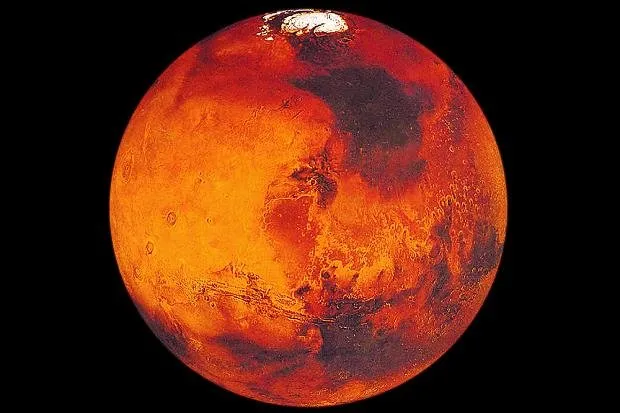
(Source)
I posted the first part of this discussion a few days ago and received a lot of positive support and comments. In that post, I promised that my next post (this one) would outline the case for going to Mars before the Moon. However, in the process of researching that argument, I realized that I don't really feel there is a convincing case for going to Mars before the Moon, just a convincing one as to why we should ultimately make our way there. For the sake of a well-rounded discussion, I'll outline what I've found to be the overall rhetorical push for Mars (and simultaneously continue my argument for why the Moon should come first.)
Overall Argument
A Resemblance to Earth-
Mars pulls on the heartstrings of humanity's sentimentality. In Mars, we see Earth as it might have been. It has a 24.6 hour day, polar caps, volcanoes, sand dunes, and (former) riverbeds. Evidence continues to build for the argument that Mars once had flowing water on its surface. If not for the destructive effects of a perpetual solar wind, it might even have had an atmosphere quite similar to that of Earth. Its gravity is 2.7 times less than that of Earth but significantly stronger than the Moon's 6.1 times less than that of Earth. Both planets have seasons. It's easily the most similar planetary body in the solar system.
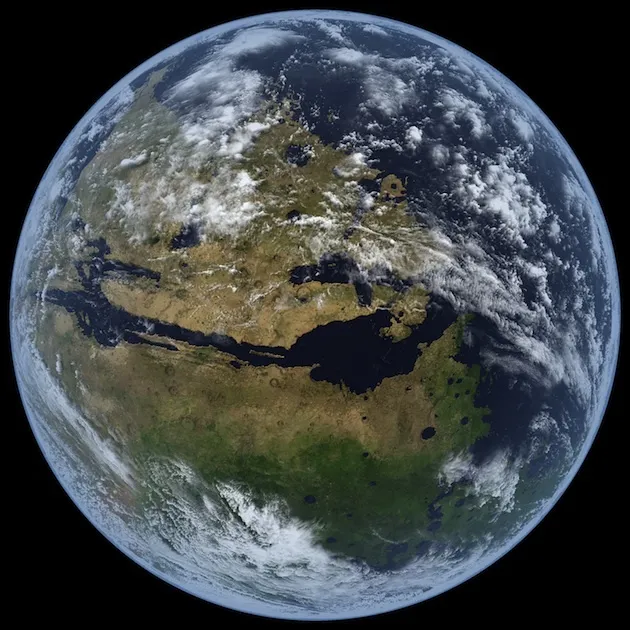
How a terraformed Mars might look - (Source)
I think this is an absolutely valid reason to colonize Mars (in the long run). In terms of similarity, if Mars is your neighbor, then the Moon might not even live in the same state. However, sentimentality should not drive humanity's space exploration if colonizing it is more expensive and unfeasible with current technologyAn Atmosphere
Mars offers something that the Moon (currently) simply does not: protection against radiation. While Mars' atmosphere is significantly thinner than that of the Earth, it is better than the Moon's non-existent one. However, this is not a particularly strong reason because the amount of protection offered by Mars' atmosphere would still result in exponentially higher exposure to solar radiation than on Earth.
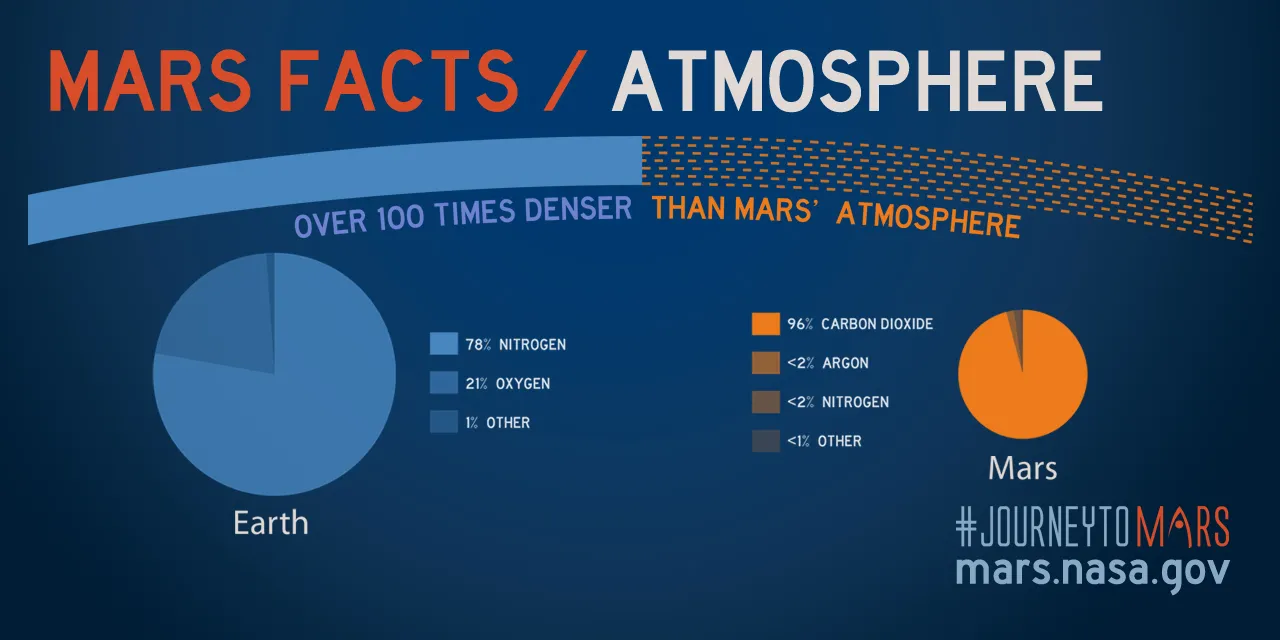
Mars' atmosphere - (Source)Availability of life-sustaining compounds-
Mars has significantly more carbon, nitrogen, hydrogen, and oxygen than the Moon. Further, while the Moon potentially has stores of ice water in the permanently shaded areas of its poles, it's limited location could serve as a serious roadblock to extensive settlement (unless we were to terraform the Moon, but that's an entirely different argument.) Mars also has significantly more metals than the Moon (notably copper), which would in the long term make it more economically valuable. As a counter-argument, the value of colonizing the Moon doesn't lie in the possibility of full-moon colonization and lunar mining (which does actually have some value), but rather the scientific advances that establishing a permanent lunar base might yield.
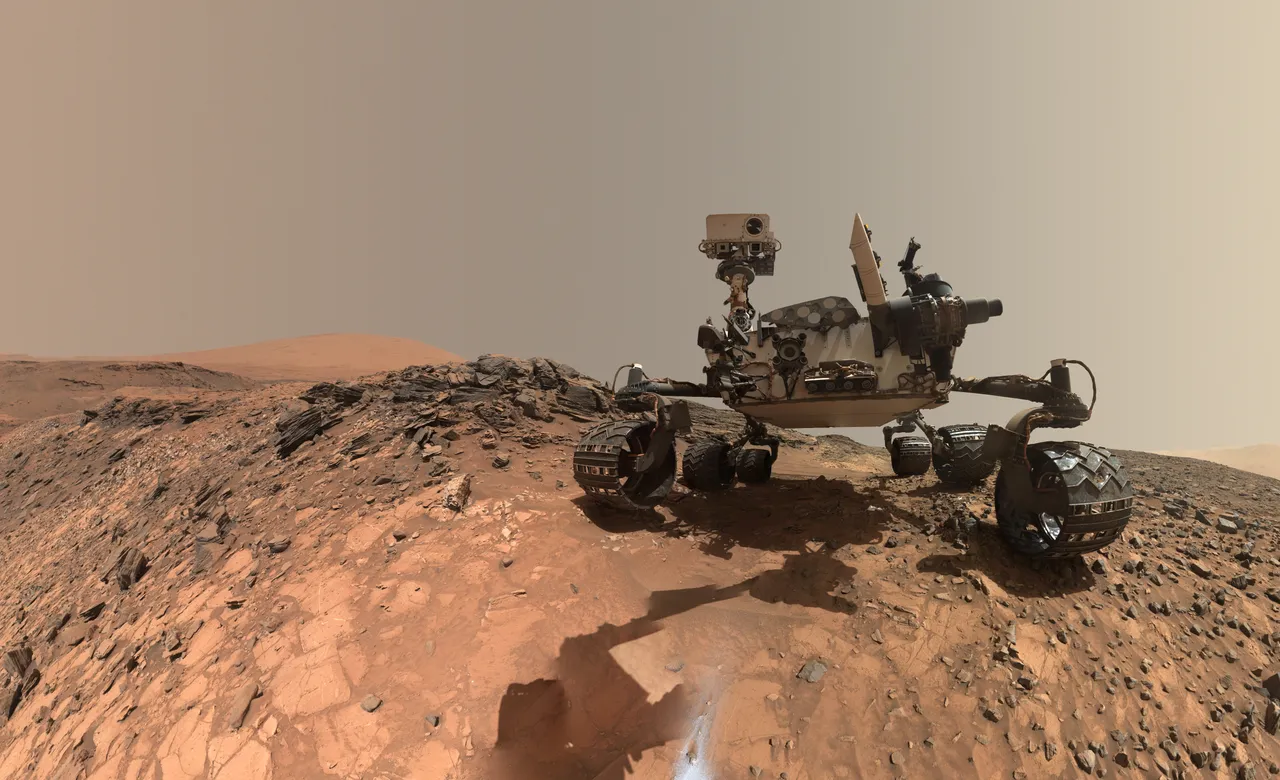
Much of our knowledge of the composition of Mars has come from rovers like Curiosity - (Source)The Survival of the Human Race-
Ultimately, the main argument we continuously hear for why we should colonize Mars is that we need, as Elon Musk recently put it, a "backup drive." The Earth is becoming a more dangerous place the longer we live on it. Explosive population growth, rampant global warming, melting polar ice caps, it seems unlikely that the Earth's surface will look the same in 100 years as it does today. According to Stephen Hawking,
If the human race is to continue for another million years, we will have to boldly go where no one has gone before.
Conclusion
Fair enough. The point that humanity needs to expand to thrive, or at least survive, is well made. But that is not a reason to go to Mars before the Moon. Humanity needs a logical and well laid-out game plan for expanding into the solar system. Science isn't built on hopes and dreams, but on logic and hard work (although hopes and dreams play their role in inspiring people to become scientists in the first place.)
When it comes down to it, the Moon is closer, easier, and equally valuable in the short term as Mars. What NASA and other space exploration agencies need right now are success and clear progress. These are the only things that can guarantee continued funding and ultimate growth, both of which we will need to have any hope of reaching Mars and ultimately the rest of the universe.
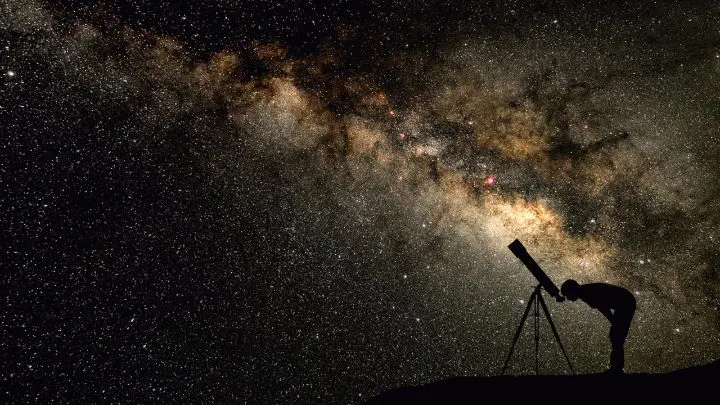
(Source)
Sources
- http://www.nss.org/settlement/mars/zubrin-colonize.html
- http://qz.com/379666/heres-why-humans-are-so-obsessed-with-colonizing-mars/
- http://www.redcolony.com/features.php?name=whycolonizemars
- http://waitbutwhy.com/2015/08/how-and-why-spacex-will-colonize-mars.html
- http://www.space.com/28189-moon-mining-economic-feasibility.html
- http://www.space.com/24731-mars-radiation-curiosity-rover.html
- https://www.newscientist.com/article/dn13748-stephen-hawking-calls-for-moon-and-mars-colonies/
- http://www.thespacereview.com/article/221/1